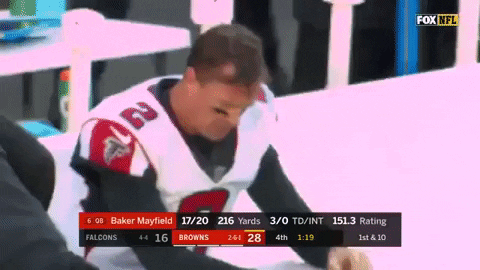The Dan Quinn Dilemma
- David

- Dec 31, 2019
- 5 min read
Updated: May 23, 2020

Friday morning the Atlanta Falcons announced their plans to retain head coach Dan Quinn for a fifth season. That revelation ruffled many a feather among the “Rise Up” nation as Falcons fans expressed their displeasure with the decision and the hope that the team would move in a new direction following consecutive 7-9 campaigns. The 2019 Falcons rallied from a 1-7 start to finish the second half of the year 6-2 in a surge that owner Arthur Blank hinted saved Quinn’s job. Quinn will return to helm the Falcons for a sixth year, but the question is -- should he?
The Case for DQ
Exhibit A - Coaches that reach a Superbowl don’t get fired this quickly. Below is a chart comparing Quinn to other coaches that lost a Superbowl early in their tenures -- John Fox* in Carolina and Lovie Smith with Chicago -- and Ron Rivera, who lost the Superbowl in year five with Carolina.

The general rule seems to be that a Superbowl appearance earns you a cushion of back-to-back subpar seasons, but once the team goes from subpar (seven or eight wins) to legitimately bad, you’re out the door. Smith was fired after going 2-14 and 6-10 in his last two years and Fox was fired after 8-8 and 2-14 records in his final two seasons. Ron Rivera was the most recent casualty after 7-9 and 5-7 records earned him an untimely exit from Carolina in 2019. Even Andy Reid’s run of nine playoff appearances in 12 years (including a Superbowl appearance) couldn’t save him from getting the axe after going 8-8 and then 4-12 in consecutive years.
The rule even applies to Superbowl winning coaches. The Green Bay Packers fired Mike McCarthy on the heels of seven-consecutive playoff appearances AND a Superbowl victory after a 7-9 season followed by a 4-7 start in 2018. The only exception in the last 15 years is Sean Payton who somehow survived three consecutive 7-9 campaigns in New Orleans after four consecutive playoff berths and a Superbowl victory.
* Note: Fox was an outlier as head coach in Denver. He lost the 2013 Superbowl and was fired the next season after going 12-4.
Exhibit B - DQ has had playoff success. The Falcons made the playoffs in two of his first three years, going 29-19 in the regular season and 3-2 in the playoffs en route to an NFC Championship and a Super Bowl appearance in 2016. Quinn’s ability to game plan against elite offenses was evident, particularly in 2017 when the Falcons held the Eagles and Rams to a combined 28 points in the first two rounds of the postseason
Exhibit C - He has identified and developed linebacker and secondary talent. Quinn has worked hand-in-hand with general manager Thomas Dimitroff during the last five drafts with mostly positive results drafting defensive players. Deion Jones, Ricardo Allen, Damontae Kazee, Keanu Neal, Brian Poole, De’Vondre Campbell, and Foye Oluokon are all testaments to Quinn’s ability to scout and develop unknown or under-valued talent at the second and

third levels. Neal and Jones went from draft day “reaches”to Pro Bowlers. Kazee and Allen were transformed from mid-to-late round corners to quality starting safeties (Kazee tied for the league lead in INT in 2018). The verdict is still out on 2018 second round pick Isaiah Oliver, but he and 2019 selection Kendall Sheffield showed tremendous growth in the second half of this season. Of course those successful draft selections must be balanced against the two most glaring misses at those same positions -- second round cornerback Jalen Collins and third-round linebacker Duke Riley.
Exhibit D - The 2017 defense. Dan Quinn’s second year in Atlanta was the lone season in which the Falcons fielded a Top-10 defense (No. 8 in scoring, No. 9 in yards). It’s also the last time the Falcons ended the season with less than three defensive starters on season-ending injured reserve. While it’s impossible to predict health, there is reason to believe a reasonably healthy 2020 season could see the Falcons return to at least a league average defense.
Exhibit F - Catastrophic injuries torpedoed the 2018 season. The Falcons have underachieved each of the last two years, but 2018 can be partially blamed on an injury epidemic of biblical proportions:
Keanu Neal - 15 games missed
Devonta Freeman - 14 games missed
Andy Levitre - 14 games missed
Ricardo Allen - 13 games missed
Brandon Fusco - 9 games missed
Deion Jones - 9 games missed
Derrick Shelby - 9 games missed
While EVERY team deals with injuries and depth is crucial to building a winning roster, only a handful of teams not named New England could overcome the loss of as many impact starters as the Falcons did in 2018.
Exhibit E - Staff turnover takes time. Matt Ryan’s “learning” curve with offensive coordinators has been well-documented with his second year under Kyle Shanahan leading to an MVP

and his second year with Steve Sarkisian leading to a monstrous 35 TD, 4,900+ yard year. A new staff would likely bring in Ryan’s fourth new OC in the last five years. Assuming the usual two-year learning curve, the team would be left hoping they could still squeeze a few championship years out of a 36-year old Ryan and a 32-year old Julio Jones on the last year of his contract. A coaching change all but guarantees another wasted year of prime Matt and Julio.
The Case Against DQ
Exhibit G - 28-3. Blowing the biggest lead in Superbowl history falls squarely at the feet of the head coach. Enough said.
Exhibit H -The defense hasn’t been elite. Quinn came to Atlanta as arguably the mostly highly-touted defensive mind in the league after orchestrating four consecutive No.1 defenses in Seattle. He has not had the same success in Atlanta; the Falcons defense has ranked in the bottom third of the league in four of his five seasons. Even the Falcons Superbowl season rested on the shoulders of an MVP quarterback and an all-time great offense -- not the elite defense that marked Quinn’s time in Seattle. Quinn took over the defense this season hoping to re-establish that identity then essentially had to fire himself as after a 1-7 start. If a defensive head coach that can’t assemble even a league-average defense, what exactly is his value?
Exhibit I - Quinn hasn’t fixed the pass rush. The most damning part of Atlanta’s defensive

mediocrity is Quinn’s inability to draft or develop impact pass rushers -- particularly with his background as a defensive line coach. Vic Beasley’s 15.5 sack 2016 season appears to be a complete outlier, Takk McKinley has been maddeningly inconsistent, and Grady Jarrett remains the only consistent impact player along the defensive front during the Dan Quinn tenure. After Jarrett, Atlanta’s best defensive line players have been a parade of stop-gap veterans like Adrian Clayborn, Allen Bailey, and Dontari Poe.
Exhibit J - The long losing streaks. The Falcons have had losing streaks of six games in 2015, five games in 2018, and six games in 2019. That seems impossible. The 2015 skid made the Falcons the first team in NFL history to miss the playoffs after a 5-1 start. While the Falcons rallied in the final weeks of the 2018 and 2019 seasons to achieve respectable records, the repeated losing streaks raise serious questions about Quinn’s ability to make in-season course corrections. Why did it take half the 2019 season to right the ship? If the Falcons get off to a slow start in 2020, there be another five or six week slide before they Quinn can figure it out?


Comments